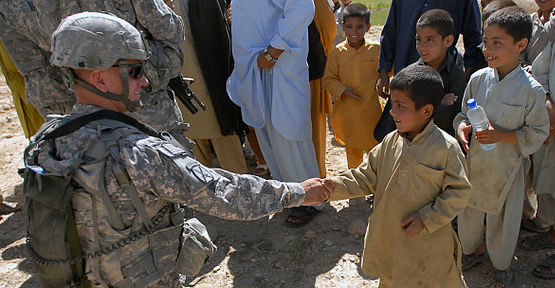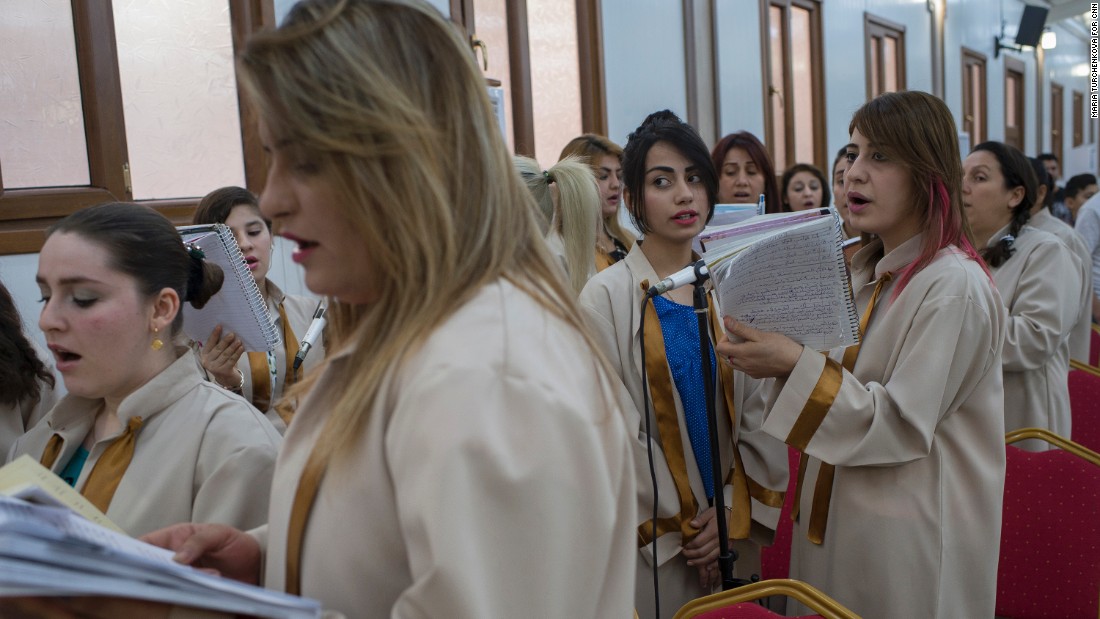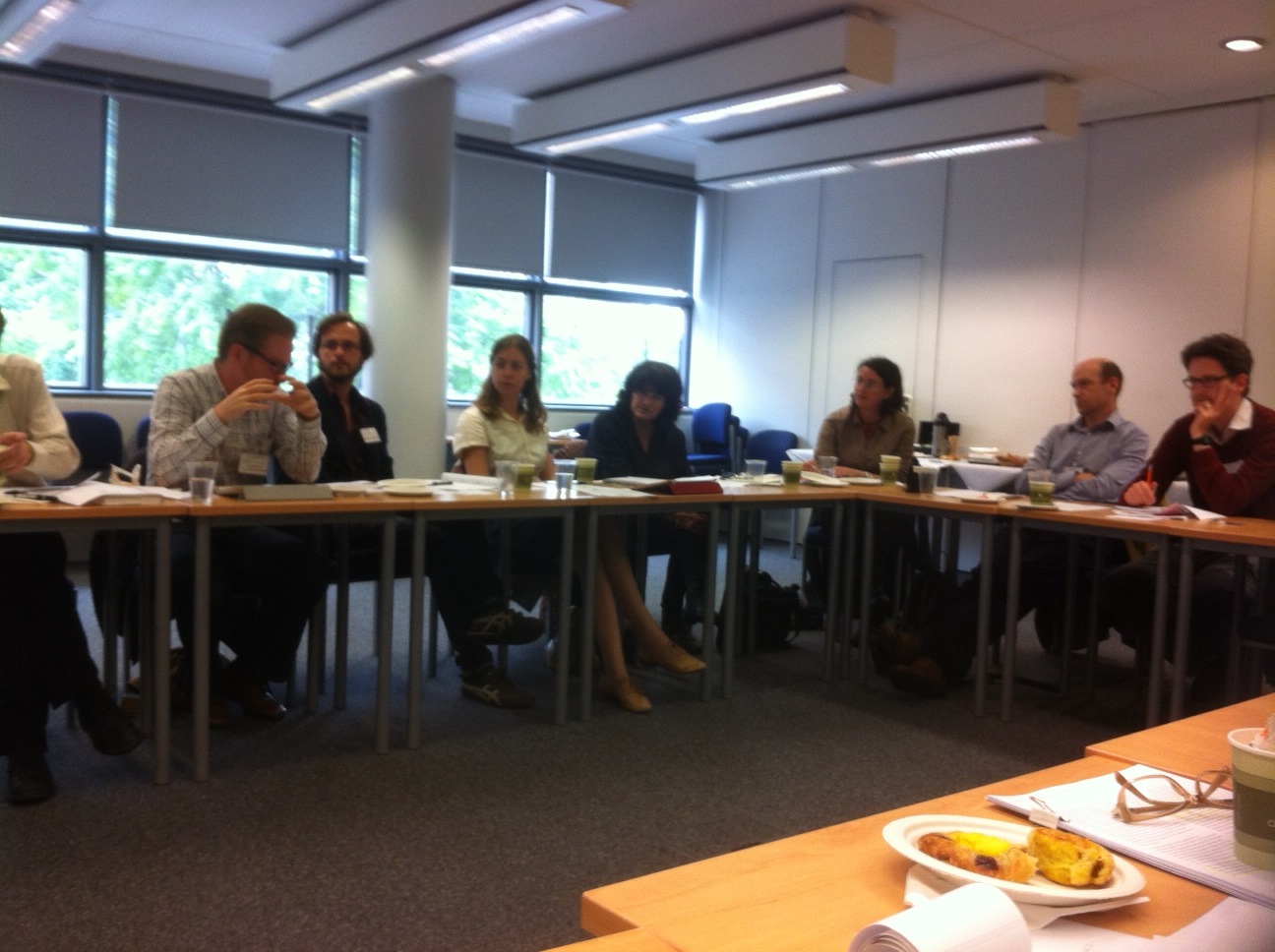Though unlikely to happen any time soon, recent calls for the US to pay reparations to the Afghan people provide an opportunity to reflect on the complexities of reparations and global justice.


Though unlikely to happen any time soon, recent calls for the US to pay reparations to the Afghan people provide an opportunity to reflect on the complexities of reparations and global justice.

This post comes from Jennifer Spindel, Assistant Professor in the Department of International and Area Studies at the University of Oklahoma and a 2018 participant in Bridging the Gap's New Era...

For many, Saudi Arabia finally went too far. Saudi journalist Jamal Khashoggi went missing after entering the Saudi consulate in Istanbul; reports suggest he may be dead. Pundits who gave Mohammed...

Vice President Pence recently pressured the US agency for international development (USAID) to appoint a special liaison to Iraqi Christians. This may not capture the same headlines as the Kavanaugh...

[As two fellow NGO researchers, Wendy and Maryam are going to collaborate on some posts to provide contrasting views on hot-button issues related to NGOs. Think of us as the Siskel and Ebert of NGOs - we definitely agree on certain things, but clearly not on others (and don’t ask who’s who). Our points of view will not always reflect what we personally think of an issue--we need drama and suspense!--but we will always provide food for thought.] By now everyone is well aware of the recent tragic killing of Cecil the lion by Minnesota dentist Walter Palmer. Josh shared a post about this...
As a new Duck, who (like Cai & Tom) took a while to consider what to blog about, I finally decided - long-winded academic that I am - to write a series of posts on the #BringBackOurGirls hashtag campaign. To this end, I draw on materials for a keynote I just delivered at the University of Surrey's Center for International Intervention's conference on "Narratives of Intervention: Perspectives from North and South" (#cii2015). Here I go: On April 14, 2014, 276 girls between the ages of 15-18 years were abducted from a school in Chibok, Northern Nigeria, days before they were set to take...
To begin with a confession, I have spent far too long contemplating what to write about as my first post, due in no small part to sharing fellow Guest Duck Tom's nerves about joining such formidable paddling of regular Ducks. However, Wendy's post on human rights having gone mainstream and no longer being revolutionary has given me exactly the push I needed to get started. Specifically, I want to explore Wendy's argument in relation to claims for LGBT rights. My aim is not to counter Wendy's argument, which I find persuasive, but rather to use it as a starting point for thinking through the...
Recently, Joel Pruce and Doutje Lettinga wrote contributions to openGlobalRights that lamented the non-revolutionary, and I would go so far as to say, anti-revolutionary tone that human rights have come to represent in global and local citizen politics. Both observers note the trend that international nongovernmental organizations (INGOs) working on human rights have indeed, become “soft” in their success, earning reproach from critics such as musician-activists Pussy Riot. More harshly, INGOs can be viewed as complicit with state domination. In essence, human rights and the INGOs that fight...

In late May, the People’s Republic of China (PRC) released a white paper on China’s Military Strategy. This public release is the first of its kind, and it has received relatively little attention in the broader media. While much of the strategy is of no big surprise (broad and sweeping claims to reunification of Taiwan with mainland China, China’s rights to territorial integrity, self-defense of “China’s reefs and islands,” a nod to “provocative actions” by some of its “offshore neighbors” (read Japan)), there was one part of the strategy that calls for a little more scrutiny:...
In her seminal 1997 article, Power Shift, Jessica Mathews argued that a power shift was underway in international politics marked by a redistribution of power from states to non-state actors—mostly businesses and non-governmental organizations (NGOs). Almost two decades later, NGOs are trying to foster a new sort of power shift, this time transferring power from the global north to the global south. This power shift was one of the substantive topics of discussion at the BISA NGO Working Group workshop I wrote about last week. The BOND report and subsequent presentations by academics, Amnesty...

Last week, this duck crossed the pond to attend the British International Studies Association (BISA) NGO Working Group workshop on Non-governmental Organizations (NGOs) in Global Governance. The workshop convened scholars of NGOs as well as NGO practitioners to consider the practice and changing landscape of global governance as well as the role of NGOs therein. A highlight was an interactive session during which we discussed the recent BOND--the UK membership body for organizations working in international development--report Fast Forward: The Changing Role of UK-based INGOs. The rich...
Hello there! I'm very excited to be blogging here at Duck of Minerva for the next several months, and I'd like to thank all the full-time Ducks for the opportunity! For my first post, I thought I'd address something I've been thinking about ever since a student asked about it in my US Foreign Policy class this past semester. She asked about the BDS movement and whether I thought it had any chance of influencing Israel's behavior towards the Occupied Territories and the Palestinians. Not having thought much about the issue before, I gave a typically hemming-and-hawing answer, but the more I...